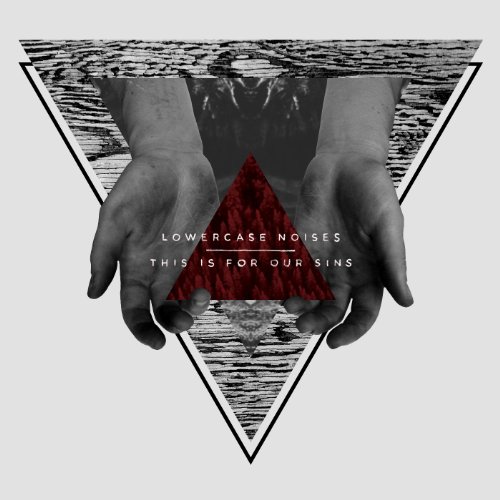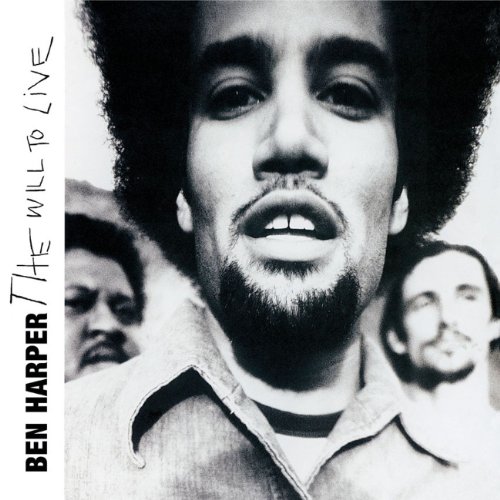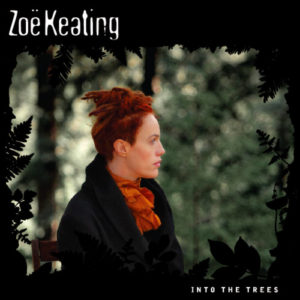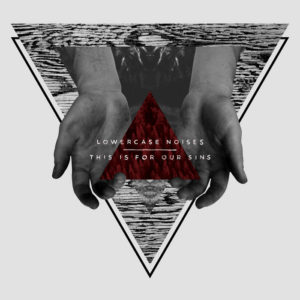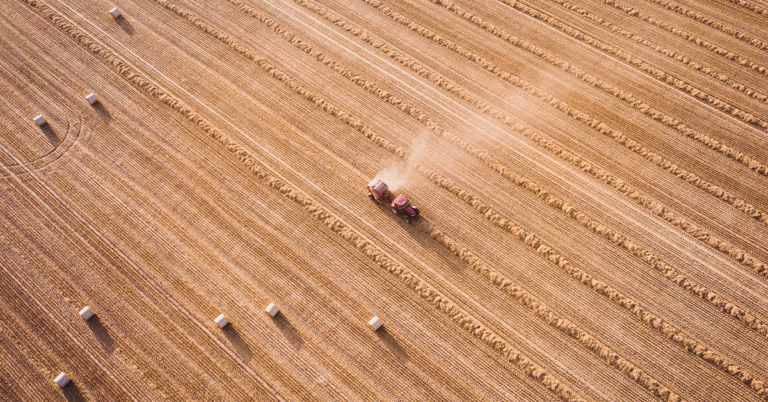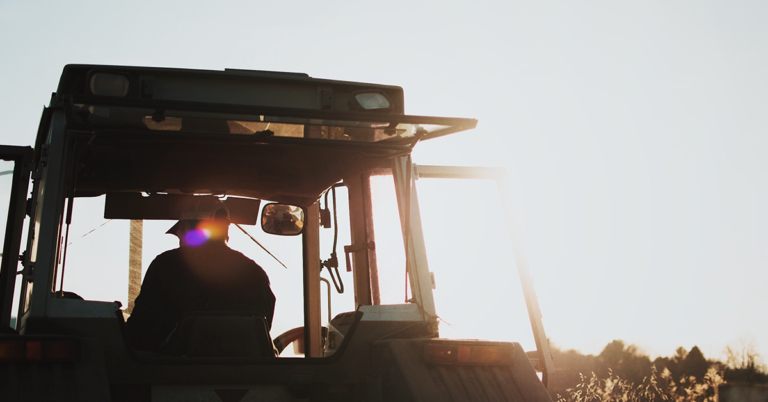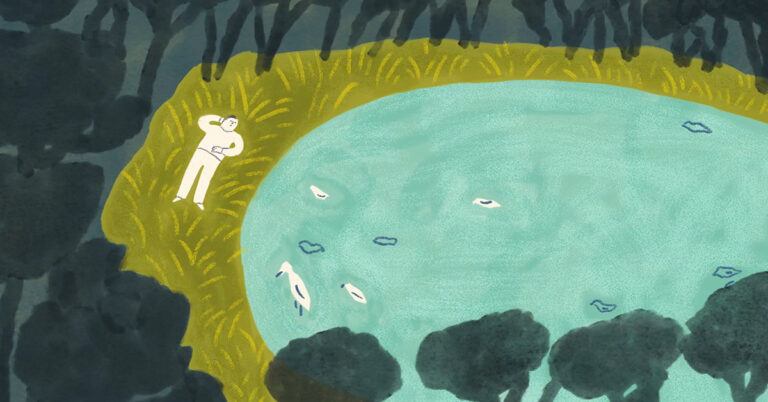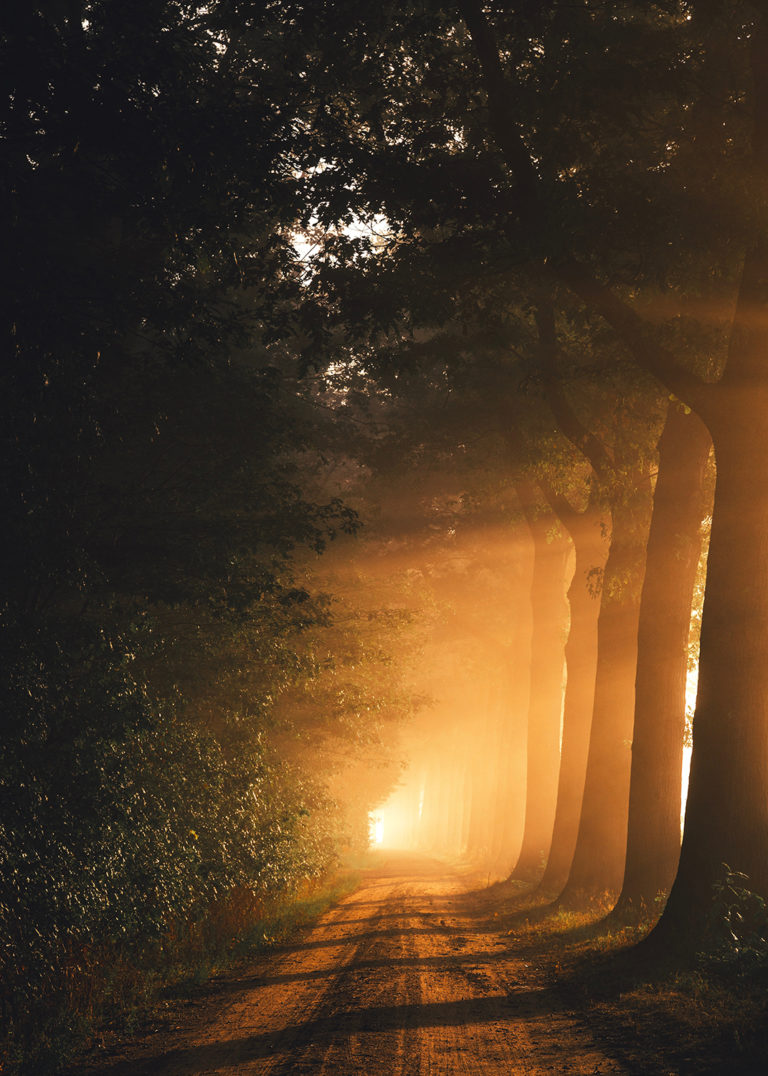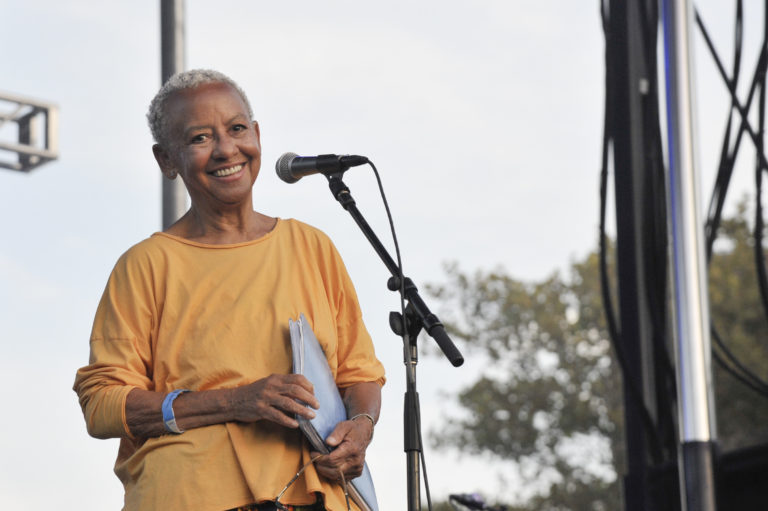Wendell Berry and Ellen Davis
The Art of Being Creatures
In this intimate conversation between Krista and one of her beloved teachers, we ponder the world and our place in it, through sacred text, with fresh eyes. We’re accompanied by the meditative and prophetic poetry of Wendell Berry, read for us from his home in Kentucky: “Stay away from anything / that obscures the place it is in. / There are no unsacred places; / there are only sacred places / and desecrated places. / Accept what comes of silence.”
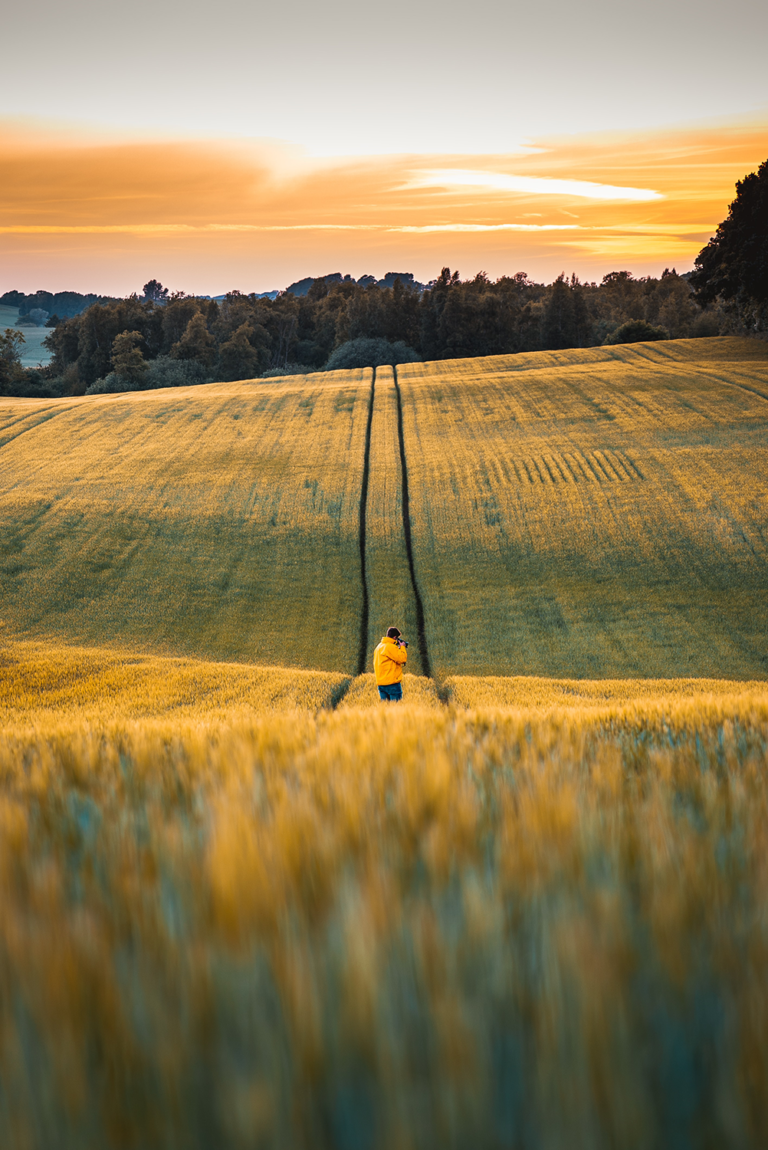
Image by Andrea Dress/Unsplash, Public Domain Dedication (CC0).
Guests
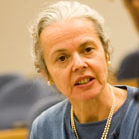
Ellen Davis is the Amos Ragan Kearns Distinguished Professor of Bible and Practical Theology at the Duke University Divinity School in Durham, North Carolina. She’s the author of Scripture, Culture, and Agriculture: An Agrarian Reading of the Bible.
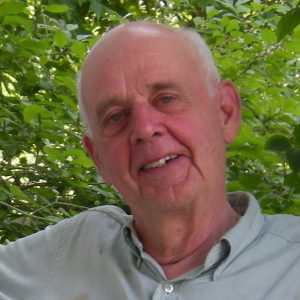
Wendell Berry is a farmer, poet, and environmentalist who has published more than 50 books. He lives in Port Royal, Kentucky.
Transcript
Krista Tippett, host: For centuries, the western world read the Bible as a call to dominate the earth and subdue it. For the 50th anniversary of Earth Day, we re-experience this sacred text as a call to reframe the human relationship to the natural world – the land, as theologian Ellen Davis says, on which our life depends. With the poetry of Genesis alongside the poetry of Wendell Berry, we remember the lost art of being creatures.
[music: “Seven League Boots” by Zoë Keating]
Wendell Berry: [reading “The Peace of Wild Things”]
When despair for the world grows in me
and I wake in the night at the least sound
in fear of what my life and my children’s lives may be,
I go and lie down where the wood drake
rests in his beauty on the water, and the great heron feeds.
I come into the peace of wild things
who do not tax their lives with forethought
of grief. I come into the presence of still water.
And I feel above me the day-blind stars
waiting with their light. For a time
I rest in the grace of the world, and am free.
[music: “Seven League Boots” by Zoë Keating]
Tippett: I’m Krista Tippett, and this is On Being.
Ellen Davis is a professor at the Duke University Divinity School. I first met her in the early 1990s, when she was at Yale Divinity School and my teacher of the Hebrew Bible, the Old Testament. Over two semesters, she captivated our imaginations — excavating nuance in the biblical writings. And in the years that followed, she became actively involved with an emerging network of theologically and scientifically informed initiatives on ecology. She eventually brought all of that together in her scholarship, with the farmer and poet Wendell Berry, as one of her friends and collaborators. He is famously private, but agreed to read poetry for us from his home in Kentucky to accompany this conversation I had with Ellen, which happened in 2010. But this episode includes never-before released conversation and poetry, as an offering to our world in crisis.
Tippett: I’m slightly daunted, interviewing my teacher like this, and I’m gonna have to be in a different role with you. [laughs]
Ellen Davis: [laughs] I think we can get past that.
Tippett: [laughs] Let’s just try to get past it. [laughs] And as I was thinking about the questions I might want to ask you, some of which I always ask people, I realized that even though you and I have had conversations around these things, I’ve never quite asked you these questions. I don’t know all the answers. So one place I always start with people, whatever we’re talking about, is, was there a religious background to your childhood? And actually, I’m not sure that I know the answer to that question.
Davis: Yes. I’m a cradle Episcopalian. There’s never been a time in my life when I haven’t gone to church. But I would say that church means quite a different thing to me, or religion means quite a different thing to me, than I think it did to my parents or anyone — almost anyone else in my family. I did not grow up in a family that would have defined itself as particularly religious, although we were churchgoers.
Tippett: When and how did you start heading towards a career in biblical scholarship and theology? How’d that happen?
Davis: Consciously, I was an exceedingly late bloomer.
Tippett: [laughs]
Davis: I was a classics major at college; I was interested in the ancient world; it never occurred to me to focus on religion or the Bible. I was going to a state university, the University of California. We didn’t even have a department of religion. And women were not ordained at that time, in the Episcopal Church. So it never occurred to me that I would have a profession in religion. I’m also quite introverted, and it would not have occurred to me that I would enjoy work as public as teaching is. When I was a young person, I wanted to be a librarian.
Tippett: Okay. [laughs] And isn’t it right, that you landed in Berkeley, at the University of California, Berkeley, in 1968? Is that right?
Davis: It is — ’67.
Tippett: And that you don’t consider yourself to be the perfect specimen of where our cultural imagination goes, about [laughs] who was in Berkeley in 1967? [laughs]
Davis: No — although, probably, nobody emerged unscathed. But I actually went to Jerusalem in 1969, largely because I wanted to be someplace that was sane. And Jerusalem, by comparison, looked calm to me.
Tippett: That’s really interesting, isn’t it, from this vantage point. And with this focus and this theme of the land, I also wonder if you would just — how did being in California, doing a lot of growing up there, what kind of imagination did you pick up from that place and from that part of your life, about land; what land means?
Davis: I grew up in one of the most beautiful places in the world. And so there was never a time when I was not conscious of being in an exceptionally beautiful place, and maybe the best thing I can say about my childhood is that my friends and I did not take that for granted. And we were outside every day. We would often just walk around the island and tell each other about the stories we were reading. There was still a lot of wildness in the Bay Area in my childhood. And a second thing, I would say, is that I watched the place I loved most change over the early decades of my life and change in ways that I think we now all recognize are probably not sustainable. And while I didn’t have that phrase to apply to it as a young person, I realized it was changing in ways that were probably not healthy.
Tippett: What do you think of when you say that, those changes?
Davis: Well, I — you know, I think about highways going through places where there used to be farms. When I grew up, there was a lady raising goats and I would pass her every day on my way to school. Well, you know, that, that seems like another century now. It is another century.
Tippett: Well, it was.
Davis: Yes, indeed.
Tippett: Yeah, and then what really strikes me is also that this theme that you have become so passionate about and so wise about and you steeped yourself in the texts and traditions around the land, but that you started, as I understand it, thinking about this maybe 15, 20 years ago. And it wasn’t because you set out to be an environmentalist. You were very much a scholar. And yet, as you say, you stumbled across this. You came up on it in the course of your normal professional activity of reading and interpreting the Hebrew Scriptures. So can you kind of tell me that story? I mean, can you trace it?
Davis: Sure. Sure. You may even have been in the class, but I was lecturing my way all the way through the Hebrew Bible, the Old Testament, for the first time. And I think at the end of the first semester, one of my doctoral student teaching assistants said when we were making up the final exam, “Well, you need to ask a question about land.” And I said, “Why?” And he said, “Because you talk about it all the time.” And I was not conscious of doing that; I was simply aware of talking my way through each book of the Bible. I would now say it’s obvious that I would be talking about land all the time because you can’t go more than a few chapters in the Old Testament Hebrew Bible without seeing some reference to land, water, its health, its lack of health, the absence of fertile soil and water. But at the time, that came as a surprise to me. And so I became more conscious of what I was doing.
And at the same time, I had made a trip back to California and to a part of California not so far from where I’d grown up but far enough that I hadn’t been there in a number of years. And, again, I was shocked at the changes that had taken place within my memory. And I began to recognize that there was a huge gap between the kind of exquisite attention that the biblical writers are giving to the fragile land on which they live and the kind of obliviousness that characterizes our culture, or did at that time, in respect to our use of land. And California and Israel are very comparable landscapes. They’re both fragile, both semi-arid. So I found time sort of collapsing in a certain sense, but there was an odious comparison between that care of land which is at least held up as an ideal in the Bible and the disregard of it that I was seeing in my own place.
Tippett: And when you — as you took that realization back into your scholarship, did you even start seeing things that you hadn’t seen before?
Davis: Oh, yes. And that continues now. As I started reading text — well, first I thought that I was going to have to be very careful to find text that would speak to the care of land, and that turned out not to be true at all, that I could open up almost anywhere in the Bible and find something.
Tippett: Right.
Davis: But now I continue to find that even reading chapters, passages that I’ve written on before, that I’ve lectured on countless times, when I read them from the perspective of what they have to say about the land on which our life depends and its health, things pop out at me that I had simply overlooked before, or things make sense to me that I had never tried to make sense of.
[music: “The Hungry Years” by Lowercase Noises]
Tippett: I’m Krista Tippett, and this is On Being. Today: the lost art of being creatures, with theologian Ellen Davis and the poetry of Wendell Berry. The first chapter of Genesis is, as Ellen Davis puts it, a magisterially toned “liturgical poem.” In six days, “at the beginning of God’s creating,” as the Hebrew has it, God makes night and day, firmament and water, seeding plants, sun and stars, fish and fowl, crawling creatures of the dry land, and finally, human beings. And in a verse that colonizers and missionaries of the Christian West took on with vigor, God blesses the man and woman created in God’s image. And here’s how the King James version translated God’s command to them: “Be fruitful and multiply, and replenish the earth, and subdue it: and have dominion over the fish of the sea, and over the fowl of the air, and over every living thing that moveth upon the earth.”
[music: “The Hungry Years” by Lowercase Noises]
Tippett: So, you know what I thought would be interesting for us to do is just pick up Genesis. I have the Tanakh, the Jewish Publication Society Bible, in front of me, and I have Everett Fox’s The Five Books of Moses, which is a translation, and it’s very close to the Hebrew.
Davis: Yes. Yeah.
Tippett: And not necessarily as linear. It doesn’t necessarily read in a smooth way in English but, as you’ve said it, it makes the Hebrew more transparent, including rhythms and allusions. And so with agrarian eyes, you know, what do you see when you open Genesis 1?
Davis: Well, the first thing that stands out is that the rhythm of the passage changes when we get to the creation of the dry land on the fifth day. That up until that point — actually, I think the dry land is created a little bit sooner than the fifth day, but it begins to be furnished for habitation on the fifth day — and up until that point, Genesis 1 is really very terse. “Let there be light, and there was light” “Let there be a firmament in the midst of the waters … and it was so.” But then, when the dry land begins to be furnished for habitation, suddenly there is blessing enters the world. So the creatures are blessed. And of course, we know human beings are blessed on the sixth day, but we often overlook the fact that the creatures of sky and sea receive exactly the same blessing, pru u’revu, “be fruitful and multiply.” And so we are living amongst creatures who are blessed before we even come into existence. I think that’s an important thing to recognize.
Tippett: Now let’s just, you know, point out that I think the passage, if people know something from this, it is this blessing that also seems to contain not just permission but a commandment to — you know, the words, the translation’s different: “to have dominion,” Tanakh says “to master it,” “to rule the fish of the sea.” So you’re saying that that’s tempered first of all by the context. But, you know, how do you step back from that and what do you see is happening there that is not clear in the way we have translated and used these texts?
Davis: OK. The Hebrew word is a strong word, and I render it “exercise skilled mastery amongst the creatures” because I think the notion of skilled mastery suggests something like a craft, an art, of being human without taking away the fact that humans do, from the perspective of almost all the biblical writers — not every single one but almost all — humans occupy a very special place of power and privilege and responsibility in the world. But the condition for our exercise of skilled mastery is set by the prior blessing of the creatures of sea and sky that they are to be fruitful and multiply. So whatever it means for us to exercise skilled mastery, it cannot undo that prior blessing. I think that’s pretty convicting for us in the sixth great age of species extinction.
Tippett: Hmm. Mm-hmm.
Davis: The other thing I would point out is that there is a tremendous emphasis on the fruitfulness of the earth.
Tippett: Right.
Davis: “Let the earth grasp forth grass,” the Hebrew says. “Let seed-bearing plants, fruit trees of every kind on earth that bear fruit with the seed in it,” and it goes on for another verse. Continual emphasis on how the earth is a self-perpetuating system of fertility, of fruitfulness to provide for all. And then there is the creation of the earth creatures, including humankind. And then again at the very end of the chapter, God says to the humans right after they have been given the charge to exercise skilled mastery, God says, “Look, I give you every seed-bearing plant that’s upon all the earth and every tree that has seed-bearing fruit that shall be yours for food. And to all the animals and to the birds and to the things that creep on the earth.” So food has been provided for all.
Tippett: Right.
Davis: It seems to me that this is the first and maybe the best clue that we have of what it means for humans to exercise skilled mastery amongst the creatures. That we are the one creature that is conscious that everybody has to eat.
Tippett: Right. I mean, you even write about eating as practical theology. So again, I mean, I think here’s a whole new area that Genesis talks to us about eating as part of being human and as part of being a creature. Eating is something we talk about a lot these days in our culture, right, along with words like “ecology” and “sustainability.”
Davis: Mm-hmm. Yeah.
Tippett: So talk to me about what you see there that you haven’t even paid attention to.
Davis: I think we are beginning to wake up in this culture from a long period of obliviousness about what we eat. And we’re also stepping out of our completely unprecedented lack of awareness that eating has anything to do with our life with God.
Tippett: Right.
Davis: But so it’s important to realize what a bubble we have been in, with respect to this.
Tippett: Is the prayer at mealtime that’s also going away, is that kind of a vestige of that mentality?
Davis: Oh, certainly. But I think even people who have been saying grace over their meals have not thought very much about the gift of the land and water and fertile soil that brought the food to the plate. And that I think is what’s changing now in our time. I remember 15, 20 years ago when I began thinking about this and I would be asked to speak in a church or to a group of bishops or to a group of clergy, and I would say, “This is what I wanted to work on,” and they would say, “Well, couldn’t you do something theological?”
Tippett: Right.
Davis: But that has really changed.
Tippett: Mm-hmm.
Davis: And I think that’s something to be grateful for, that in while the situation on the ground has in many ways become worse, the awareness in our culture and in religious communities really all over the world has grown significantly.
Tippett: And you do put it in very vivid and stark religious terms. I mean, you’ve written, “Every day taking our sustenance from the earth and from the bodies of other animals, we enter deeply into the mystery of creation.” You know, you said, “Eating is practical theology because it gives us an opportunity to honor God with our bodies.” You know, when I read that, that has resonance for so many things that we’re coming back to an awareness of again right now in our culture, even obesity, right?
Davis: Yes.
Tippett: And nutrition and care of body in many ways.
Davis: Yeah. For a very long time, I think we have had a highly spiritualized notion of religion in the West, that our souls, our spirits, our hearts, whatever word we wanted to use for what connected us to God, those things connected us to God; our bodies did not. With the one exception of sexuality. We thought that sexual morality in some way connected us to God, but nothing else about our physical being does. I think we are letting go of that delusion now.
Tippett: Mm-hmm. Something else that you point out in the text in Genesis that you dwell on is this image of God seeing, right, because repeatedly in the first chapter of Genesis, “God saw that it was good.”
Davis: Mm-hmm. How we see the world is how we learn to value it. And it’s striking that in Genesis 1 what we know of God, really the only things that we know of God, is that God creates and God values what God has made. God sees it as good, but that can also be translated, “God saw how beautiful it was.” And I think there’s almost an element of surprise, of delight, that, you know, we know from our own smaller creations. And so God is, in a sense, the first appreciator of the world, the first one to see that it is beautiful.
Tippett: And it’s very important that, as you said, Genesis 1 is a liturgical poem. So, I mean, before we leave Genesis behind, would you talk about how that must inform our reading of what it’s saying to us and how it’s saying it to us?
Davis: Sure. Poetry is language that speaks to our hearts. And I’m using the biblical word “heart,” which I think the closest equivalent to that in 21st-century language is our imaginations. The heart, in biblical physiology, the heart is the center of our emotions, but also of our intellect. And those two things cannot be separated. And poetic language is precise. It is detailed, it’s realistic, but it is not the discursive language of mere fact. And so I think it’s important that in different ways the first and second chapters of the Bible are telling us about our place in the world, telling us about the web of relationships into which we are born as a species. And we are placed creatures.
Tippett: Right.
Davis: We’re placed within an order. That’s a quite different way, I think, of thinking about ourselves than what we often take to be a literal reading of the Bible but, in my view, a cruder way of reading the Bible.
Tippett: Over the years as you’ve delved into this, you’ve made more and more connections with the poetry of, well, especially Wendell Berry. You’ve written about the poetry of loss and care as the poetry of creatures. What do you mean when you use those phrases?
Davis: A starting point for me in thinking about ourselves as creatures is the observation of Rowan Williams, the Archbishop of Canterbury, that now the art of being creatures is almost a lost art. And I think that notion that we need to learn, we need to be skilled, we need to be wise, in order to be the creatures that, in fact, we are, that we think of creatures as anyone who’s not human.
Tippett: Hmm. Right, right.
Davis: And, again, I think it’s part of the sense that we are limitless.
Tippett: It’s that dominion that we have over the creatures.
Davis: Yeah. Yeah.
Tippett: Mm-hmm.
Davis: And it’s why I like the phrase “the exercise of skilled mastery” because it suggests an artfulness in being human. And I think that poetry, well, I believe Wendell Berry says poetry cannot be read in distraction. You can, often you have to read an instructional manual or a textbook or whatever, without paying all that much attention to kind of skim you away through it, to get to the heart of the matter. But you can’t read poetry that way. Poetry slows you down. And I think that anything in our world now that slows us down is to be valued and maybe as a gift and even a calling from God.
[music: “Number Three” by Ben Harper]
Tippett: And here is Wendell Berry, reading his poem “How to Be a Poet.”
Wendell Berry: [reading “How to Be a Poet.”]
i
Make a place to sit down.
Sit down. Be quiet.
You must depend upon
affection, reading, knowledge,
skill—more of each
than you have—inspiration,
work, growing older, patience,
for patience joins time
to eternity. Any readers
who like your poems,
doubt their judgment.
ii
Breathe with unconditional breath
the unconditioned air.
Shun electric wire.
Communicate slowly. Live
a three-dimensioned life;
stay away from screens.
Stay away from anything
that obscures the place it is in.
There are no unsacred places;
there are only sacred places
and desecrated places.
iii
Accept what comes from silence.
Make the best you can of it.
Of the little words that come
out of the silence, like prayers
prayed back to the one who prays,
make a poem that does not disturb
the silence from which it came.
[music: “Number Three” by Ben Harper]
Tippett: After a short break, more with Ellen Davis, and more poetry from Wendell Berry. You can find this show again and all of the poems Wendell Berry read for us at onbeing.org. We’ll also be dropping these into the On Being podcast feed in the weeks ahead — you can subscribe and listen wherever podcasts are found.
[music: “Number Three” by Ben Harper]
Tippett: I’m Krista Tippett, and this is On Being. Today for the 50th anniversary of Earth Day I’m speaking with the theologian Ellen Davis. Her way of reading the Bible reframes the way Western culture long approached the natural world as something to dominate and subdue. The farmer, poet, and conservationist Wendell Berry is a friend and collaborator with Ellen Davis, and we’re weaving his poetry into this conversation as it’s woven throughout her writing. He recorded for us from his home in Kentucky. Here he is with his poem, “The Man Born to Farming.”
[music: “Collingwood” by Blue Dot Sessions]
Wendell Berry: [reading “The Man Born to Farming.”]
The grower of trees, the gardener, the man born to farming,
whose hands reach into the ground and sprout,
to him the soil is a divine drug. He enters into death
yearly, and comes back rejoicing. He has seen the light lie down
in the dung heap, and rise again in the corn.
His thought passes along the row ends like a mole.
What miraculous seed has he swallowed
that the unending sentence of his love flows out of his mouth
like a vine clinging in the sunlight, and like water
descending in the dark?
[music: “Collingwood” by Blue Dot Sessions]
Tippett: Here’s some lines from Wendell Berry that you quote in an essay: “Stay away from anything that obscures the place it is in.” Then, some later lines: “There are no unsacred places. There are only sacred places and desecrated places.”
Davis: It’s a sort of devastating statement, I think.
Tippett: It is.
Davis: And certainly, Wendell Berry feels that there are more and more desecrated places. But I think what he’s suggesting is that any place, potentially, can be a place where God is peculiarly present to us. And that’s what Jerusalem stands for in the Bible. And that’s what the temple stands for; that’s what the Garden of Eden stands for in the Bible. It’s the place where humans lived in the immediate presence of God. And the aim of pilgrimage, but even, I’ve come to feel, the aim of reading scripture, is to bring us back into the immediate presence of God.
Tippett: This is where, also, all of the connotations that the specialness of land — all the connotations that have been layered over, have been layered on top of our imagination about the Bible and about what this means over time, really get in the way of hearing this being about being in the presence of God, as opposed to possessing land.
Davis: Part of what I find myself doing in my writing now is creating a kind of shift in paradigm because I’ve seen that there is something more basic in the Bible than possession of land; it’s care of land.
Tippett: OK.
Davis: And it’s the best index in the Bible of the health of the relationship between God and Israel or between God and humankind is the health of the land of Israel or the earth as a whole, its fertility. And I think at the root of it is the notion that we are a part of an intricate web of physical relations, which are at the same time moral relations.
Tippett: OK.
Davis: How we eat and drink, how we sow our land, how we get food to our plates, how we use other bodies, other human bodies, in getting food and drink to sustain us, these are moral issues which cannot be separated from the very basic physical questions. And so I think the issue of land possession is important. There’s no question it’s important in the Bible, but it’s the question of possession can never be separated from the question of care. And I think in our — maybe in all of our cultures, going back to ancient times, we have put first priority on the questions of physical possession and somehow thought that the questions of care would take care of themselves or someone else would take care of that.
Tippett: Right.
Davis: And I think now we’ve sort of come up against the wall and maybe the best thing that we can say about ourselves at this point is we’re reaching the end of that delusion.
Tippett: Right. And there’s something very striking also in looking at kind of the sweep of where your thinking has taken you, where your studies have taken you that — you know, I mean, at the one and the same time, there’s a new association and a new sense of the relevance and the present resonance of these images of Genesis and these meanings of it. And also this prophetic message, also in the sense of needing to wake people up, right, being a voice of — judgment is a hard word; it’s not even a complicated enough word.
Davis: Um, I think that if one reads scripture carefully, one is continually challenged to rethink maybe everything that we take for granted. I sometimes say to my students the best way to find your preaching angle for any text is to ask how it challenges or turns on its head your ordinary way of thinking about how things really are.
Tippett: Hmm.
Tippett: And that, I think, is the prophetic dimension of scripture itself.
[music: “Baby Saige” by The Album Leaf]
Tippett: I’m Krista Tippett, and this is On Being. Today: the lost art of being creatures, with theologian Ellen Davis and the poetry of Wendell Berry.
And here is Wendell Berry, reading from his poetry collection “Sabbaths”:
Wendell Berry: [reading “Sabbaths – 1979, IV”]
The bell calls in the town
Where forebears cleared the shaded land
And brought high daylight down
To shine on field and trodden road.
I hear, but understand
Contrarily, and walk into the woods.
I leave labor and load,
Take up a different story.
I keep an inventory
Of wonders and of uncommercial goods.
I climb up through the field
That my long labor has kept clear.
Projects, plans unfulfilled
Waylay and snatch at me like briars,
For there is no rest here
Where ceaseless effort seems to be required,
Yet fails, and spirit tires
With flesh, because failure
And weariness are sure
In all that mortal wishing has inspired.
I go in pilgrimage
Across an old fenced boundary
To wildness without age
Where, in their long dominion,
The trees have been left free.
They call the soil here “Eden”; slants and steeps
Hard to stand straight upon
Even without a burden.
No more a perfect garden,
There’s an immortal memory that it keeps.
I leave work’s daily rule
And come here to this restful place
Where music stirs the pool
And from high stations of the air
Fall notes of wordless grace,
Strewn remnants of the primal Sabbath’s hymn.
And I remember here
A tale of evil twined
With good, serpent and vine
And innocence of evil’s stratagem.
I let that go a while,
For it is hopeless to correct
By generations’ toil,
And I let go my hopes and plans
That no toil can perfect.
There is no vision here but what is seen:
White bloom nothing explains.
But a mute blessedness
Exceeding all distress,
The fresh light stained a hundred shades of green.
Uproar of wheel and fire
That has contained us like a cell
Opens and lets us hear
A stillness longer than all time
Where leaf and song fulfill
The passing light, pass with the light, return,
Renewed, as in rhyme.
This is no human vision
Subject to our revision;
God’s eye holds every leaf as light is worn.
Ruin is in place here:
The dead leaves rotting on the ground,
The live leaves in the air
Are gathered in a single dance
That turns them round and round.
The fox cub trots his almost pathless path
As silent as his absence.
These passings resurrect
A joy without defect,
The life that steps and sings in ways of death.
[music: “Baby Saige” by The Album Leaf]
Tippett: You and also Wendell Berry do a lot of describing of this waste and destruction, this chaos. And much of that now is becoming familiar. You know, these litanies are becoming familiar of what we have wrought. And, of course, journalists are also those kinds of prophets in a way. I mean, we become — we’re inundated with these facts and with images that I think are presented with the purpose of awareness and perhaps a different kind of action but can also be paralyzing and debilitating. You know, they can have that opposite effect on our imaginations and on our action. So I wonder how you think about what the biblical text offers also in terms of nourishing hope and courage and practical ways of living forward in a different way.
Davis: It’s interesting that none of the so-called prophetic books of the Bible, the books that actually have the names of prophets attached to them, like Jeremiah, Isaiah, Amos, all of those books bring us to despair if we take them seriously. If we apply them to our lives they, in a sense, bring us to our knees. But none of them ends without what they call in the book of Jeremiah “the book of consolation.” None of them ends without a picture of the people of God returning to a healthy relationship with God, and all of them have a picture of the land being fruitful and productive, in celebration you might say, of that restored relationship between God and humanity, God and Israel.
And as kind of a parallel to that, when I began working in this area and I saw how deep the problems were, I got more and more depressed. I noticed this happens with my students when we begin studying this. The first movement is into depression.
Tippett: Mm-hmm.
Davis: But then there begins to be a sort of brightening on the path, you might say, as we begin to see that there are other people seeing the same things, we’re seeing and working on these things.
Tippett: Right.
Davis: So Wendell Berry says now, “When hope sets out on its desperate search for reasons, it can find them.”
Tippett: OK.
Davis: There are reasons, you know, in the language of Scripture, giving reason for the hope that is in us. And it’s there.
Tippett: You know, you use phrases in your writing that are kind of countercultural. You know, you speak of “a tenacious but severely chastened hope” or “things that are encouraging and deeply sobering.” And maybe it is that kind of realism that we have to have about hope, how closely it can be mingled with our despair and yet survive.
Davis: Certainly there is a difference between hope and a foolish optimism. And in order to have hope, you have to see the depth and the dimensions of the problem.
Tippett: Mm-hmm.
Davis: And I think that we are beginning to grasp.
Tippett: When you talk about Creation and Genesis and this agrarian reading of the Bible, and there’s beauty in it, there’s reverence in it, and also that the Bible and all the imagery of the Bible is no stranger to catastrophe.
Davis: Mm-hmm.
Tippett: To loss and to bitterness and grief. And it seemed especially, I mean, that really seemed especially present and, in fact, fitting for this subject in this moment in our culture in a way that surprised me.
Davis: Yes. I remember my first seminary dean when I was a student saying, “If you don’t shed some tears while you’re here you will have missed the point.”
[music: “Portrait of Arthur Rimbaud” by Giancarlos Vulcano]
Tippett: Here, in closing, Wendell Berry, reading from his poetry collection “Sabbaths”:
Wendell Berry: [reading the poem “Sabbaths – 1985, I”]
Not again in this flesh will I see
the old trees stand here as they did,
weighty creatures made of light, delight
of their making straight in them and well,
whatever blight our blindness was or made,
however thought or act might fail.
The burden of absence grows, and I pay
daily the grief I owe to love
for women and men, days and trees
I will not know again. Pray
for the world’s light thus borne away.
Pray for the little songs that wake and move.
For comfort as these lights depart,
recall again the angels of the thicket,
columbine aerial in the whelming tangle,
song drifting down, light rain, day
returning in song, the lordly Art
piecing out its humble way.
Though blindness may yet detonate in light,
ruining all, after all the years, great right
subsumed finally in paltry wrong,
what do we know? Still
the Presence that we come into with song
is here, shaping the seasons of His wild will.
[music: “Portrait of Arthur Rimbaud” by Giancarlos Vulcano]
Tippett: We’re happy to offer all six poems Wendell Berry recorded for us from his home in Kentucky at onbeing.org. And watch for them in the On Being podcast feed in the weeks ahead, wherever podcasts are found. Wendell Berry also contributed the foreword to Ellen Davis’s book Scripture, Culture, and Agriculture: An Agrarian Reading of the Bible. Ellen Davis is the Amos Ragan Kearns Distinguished Professor of Bible and Practical Theology at the Duke University Divinity School in Durham, North Carolina.
[music: “Portrait of Arthur Rimbaud” by Giancarlos Vulcano]
Tippett: The On Being Project is located on Dakota land. Our lovely theme music is provided and composed by Zoë Keating. And the last voice that you hear singing at the end of our show is Cameron Kinghorn.
On Being is an independent production of The On Being Project. It is distributed to public radio stations by PRX. I created this show at American Public Media.
Our funding partners include:
The John Templeton Foundation. Harnessing the power of the sciences to explore the deepest and most perplexing questions facing human kind. Learn about cutting-edge research on the science of generosity, gratitude, and purpose at templeton.org/discoveries.
The Fetzer Institute, helping to build the spiritual foundation for a loving world. Find them at fetzer.org.
Kalliopeia Foundation. Dedicated to reconnecting ecology, culture, and spirituality. Supporting organizations and initiatives that uphold a sacred relationship with life on Earth. Learn more at kalliopeia.org.
Humanity United, advancing human dignity at home and around the world. Find out more at humanityunited.org, part of the Omidyar Group.
The George Family Foundation, in support of the Civil Conversations Project.
The Osprey Foundation — a catalyst for empowered, healthy, and fulfilled lives.
And the Lilly Endowment, an Indianapolis-based, private family foundation dedicated to its founders’ interests in religion, community development, and education.
Books & Music
Recommended Reading
The On Being Project is an affiliate partner of Bookshop.org and Amazon.com. Any earnings we receive through these affiliate partnerships go into directly supporting The On Being Project.
Poetry
Sponsors
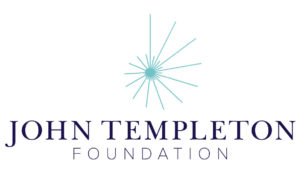
Funding provided in part by the John Templeton Foundation. The Templeton Foundation supports research and civil dialogue on the deepest and most perplexing questions facing humankind: Who are we? Why are we here? Where are we going? To learn more, please visit templeton.org.









